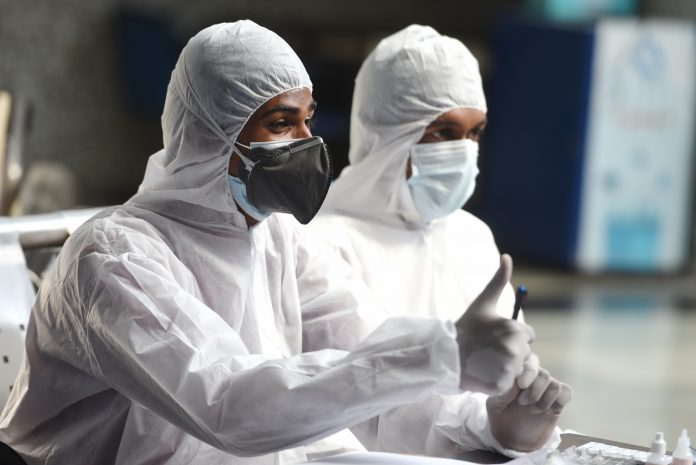The World Health Organisation on Friday (18 June) said that the Delta variant, originating in India, would be globally dominant due to “significantly increased transmissibility”
Dr Soumya Swaminathan, chief scientist at the WHO, said on Friday that the Delta variant would become globally dominant because it has “significantly increased transmissibility”.
According to an ongoing population monitoring study by Imperial College London, the Delta variant is now responsible for 90% of cases in the UK – becoming more prevalent than the locally-created Alpha variant.
The R is at 1.44 in the UK
Though as of today (21 June), over 31 million adults in the UK have two doses of vaccine, infection rates are rising for younger populations due to the Delta variant. Currently, the R number is at 1.44. This means that every ten infected people would likely pass COVID onto another 14 people.
Professor Steven Riley, Professor of Infectious Disease Dynamics at Imperial, commented: “Even though we are seeing the highest infection prevalence in younger people who are less susceptible to COVID-19, if this growth continues it will drive up infections in older, more vulnerable people, as the vaccines are not 100% effective and not everyone has been fully vaccinated.”
One of the ongoing concerns about mutations and variants is the power of vaccines in standing against them.
In an analysis via Public Health England, both Pfizer and AstraZeneca were proven to be over 90% capable of stopping hospitalisation via the Delta variant. However, the Delta variant remains twice as likely to hospitalise people as the Alpha variant – which was already significantly more infectious than other COVID variants.
‘Unprecedented broad diversity of variants is challenging’
However, more nuanced results are yet to be examined. When it comes to efficacy against variants, the CureVac trial of 40,000 people was designed to examine as many variant impacts as possible.
“While we were hoping for a stronger interim outcome, we recognize that demonstrating high efficacy in this unprecedented broad diversity of variants is challenging. As we are continuing toward the final analysis with a minimum of 80 additional cases, the overall vaccine efficacy may change,” said Dr. Franz-Werner Haas, Chief Executive Officer of CureVac.
The latest data found the vaccine, yet to be approved anywhere, was functioning at 47% against atleast 13 variants involved in the experiment. Scientists will continue to monitor how variants evolve and adjust vaccines accordingly. However, some of the poorest countries in the world remain unvaccinated and are vulnerable to even more poignant virus mutations.











